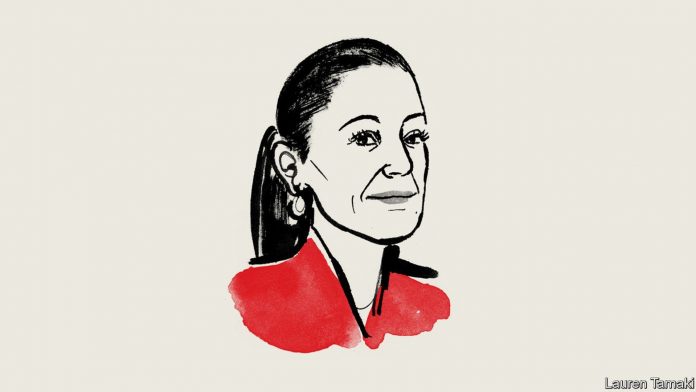by Claudia Sheinbaum Pardo: mayor of Mexico City
In December 2021 it will be three years since I assumed office as the first woman to be elected mayor of Mexico City and part of a political movement led by President López Obrador. After 30 years of failed national neo-liberal policies and six years of rampant corruption and increasing insecurity, citizens overwhelmingly voted for a radical transformation to rebuild the welfare state from below. I vowed to improve universal access to quality public education and health care, decent housing, improved public transportation and security. I promised to ensure environmental sustainability, help deal with climate change and, most importantly, to end corruption.
Three years later, despite an unprecedented medical and economic crisis created by covid-19, we have made remarkable progress towards the vision of an equitable and sustainable city. During the pandemic we guaranteed access to universal health care. Through effective co-ordination of health providers, the number of designated hospital beds was increased from 2,000 to 8,246. We provided 3.5m free covid-19 tests and delivered free oxygen to patients who did not require hospitalisation. Mexico City has one of the highest vaccination rates in the world. By the end of September 2021, 98.7% of adults had received at least one dose, and 74% were fully vaccinated.
The pandemic was an opportunity to fulfil the promise that nobody would be left behind
The pandemic emergency derailed the city’s economic dynamism. A city that depends heavily on professional services, tourism and commerce was hard-hit by months of confinement. We expanded the coverage of social programmes and created new systems to support the incomes of the most vulnerable families, ensuring they were able to cover basic needs. Around $300m in income support was delivered during the first 18 months of the crisis.
Support was also provided through our universal scholarship programme, reaching 1.2m children enrolled in public schools; expansion of unemployment insurance for 260,000 workers, including those in the informal sector; 105,000 interest-free loans to small companies; and a federal universal pension for those aged 65 and over.
In Mexico City our response to the crisis was an opportunity to fulfil the promise that nobody would be left behind. Guaranteeing the right to health care and the right to basic consumption for vulnerable families at a time of extreme hardship was our priority.
At the same time we maintained our commitment to keep our campaign promises. In three years we created two public universities; increased the capacity of the middle-school system for an estimated 41,000 more students in 2024; provided maintenance to all 2,190 public schools; and inaugurated 227 community centres (against a goal of 300) to offer free on-line education and access to skills development, sports and cultural activities for members of marginalised communities. The right to digital inclusion is provided through an expansion of high-speed fibre-optic networks. Mexico City today has the most extensive coverage of free Wi-Fi in the world.
In a city of 9.2m people within a metropolitan area of 22m, the ability to move around quickly and safely is crucial. Our expansion of public transport includes two new lines of Cablebus, an innovative transport system that provides safe, fast mobility to millions of people in the city’s poorest neighbourhoods; the addition of 200 electric trolleybuses and 300 low-emission buses; and the creation of 180km (112 miles) of new cycle lanes. All of these measures improve public transport while also reducing greenhouse-gas emissions and improving air quality.
Access to water and public spaces are two other areas where environmental sustainability intersects with public health. We doubled investment in the modernisation of the water-distribution system, parts of which are 70-100 years old. We also took steps to clean up rivers and wetlands across the city, and launched a scheme to restore public parks, rural areas and natural reserves, which collectively cover half of the city’s territory.
These achievements, even under the most difficult circumstances, show how much can be done in Mexico to build inclusive and sustainable societies when there is political will to eradicate corruption and to serve people. I am part of a political movement that has fought against electoral fraud and corruption. In 2022 and beyond, we are committed to strengthening democracy and building a city—and a country—for all people, and for our children and grandchildren.
Claudia Sheinbaum Pardo: mayor of Mexico City ■
This article appeared in the Americas section of the print edition of The World Ahead 2022 under the headline “Crisis and opportunity”
A daily newsletter with the best of our journalism
Forecasts for key events in 2022, from the superforecasters at Good Judgment
New antibody and antiviral treatments, and better vaccines, are on the way
Illegal, unreported and unregulated fishing boats are the new pirates
Forecasts for key events in 2022, from the superforecasters at Good Judgment
New antibody and antiviral treatments, and better vaccines, are on the way
Illegal, unreported and unregulated fishing boats are the new pirates
They know that Western countries have done so, too
Many of the overweight kids live in Asia and Africa
Published since September 1843 to take part in “a severe contest between intelligence, which presses forward, and an unworthy, timid ignorance obstructing our progress.”
Copyright © The Economist Newspaper Limited 2021. All rights reserved.






